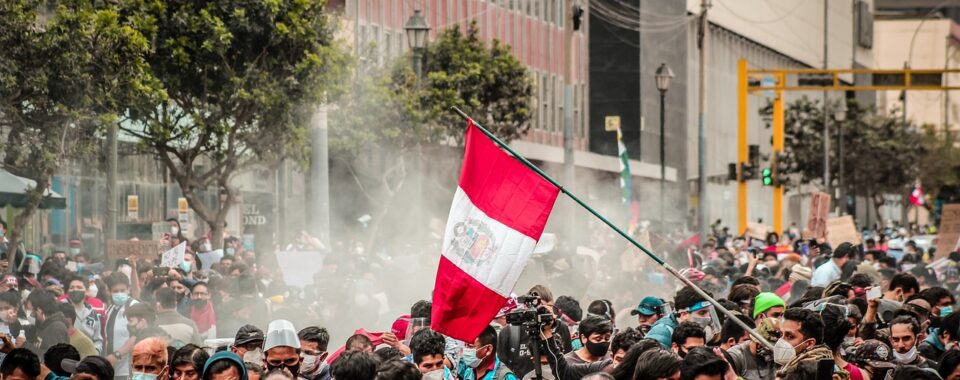BY MELINDA ELLINGTON Peru steadily improved on the Fragile States Index from 2006, with a sharp reduction in poverty,[1] and improvements in literacy,[2] infant mortality,[3] and life expectancy.[4] But against a backdrop of high inequality, since the COVID-19 pandemic in 2020 the country has veered sharply toward greater fragility, and in 2022 was among the […]
Author Archives: Natalie Fiertz
An Elusive Search for Stability in Burkina Faso as France Takes a Big Step Back
- Wednesday, 31 May 2023 16:49
- 0 Comments

By Billy Agwanda Photo by Stijn Swinnen on Unsplash Until 2015, Burkina Faso, a landlocked West African country with a population of 22 million, remained untouched by the array of jihadist groups operating in the Sahel. Prior to 2015, it was even considered to be an ‘island of stability’. Analysts and researchers opined that with […]
Twisting and Turning: Why Fragility Still Matters in a Time of Great Power Competition
- Tuesday, 30 May 2023 14:51
- 0 Comments

BY NATE HAKEN After the attacks of 9/11 an uneasy consensus began to emerge among the national security establishment, humanitarian, and international development actors around state fragility as a unified theory and organizing principle by which to develop policy. Institution building and economic development in places like Iraq and Afghanistan were understood not only as […]
Fragile States Index 2022 – Annual Report
- Wednesday, 13 July 2022 13:03
- 0 Comments
BY NATE HAKEN, DANIEL WOODBURN, JULIETTE GALLO-CARELLI, ASA COOPER, DYLAN SOUQUET MOGLEN, JIBIKEOLUWA FABORODE, YARED ASFAW, WENDY WILSON, PAUL TURNER, CELESTINE DUVOR, EPAH NYUKECHEN, NIKITA REECE, MELODY WATERWORTH, NATALIE FIERTZ, PATRICIA TAFT, JOHN MADDEN, EMILY SAMPLE, NÁDYA SILVEIRA, ANDY TOMUSIAK, RAPHAEL MILLER The Fragile States Index, produced by The Fund for Peace, is a critical […]
Successful Implementation of the Global Fragility Act: An Evidence-Based Approach
- Tuesday, 12 July 2022 18:20
- 0 Comments
In Spring 2022, the Biden Administration released the Global Fragility Act’s (GFA) long-awaited four priority countries, Haiti, Libya, Mozambique, and Papua New Guinea, and one region, Coastal West Africa.1 The release of these priority areas is a welcomed and critical step forward to implementing the bipartisan GFA signed into law in December 2019. The GFA is a game-changing law that puts peacebuilding and conflict prevention at the center of U.S. foreign policy, assistance, and security strategy.2 As recommended by AfP from the start, the Fragile States Index (FSI) was critical in this selection process with over seventeen years of evidence-based quantifiable data. The FSI will also be essential in monitoring the success and failure of the GFA strategies and, more importantly, understanding the causes of conflict and areas to target.
